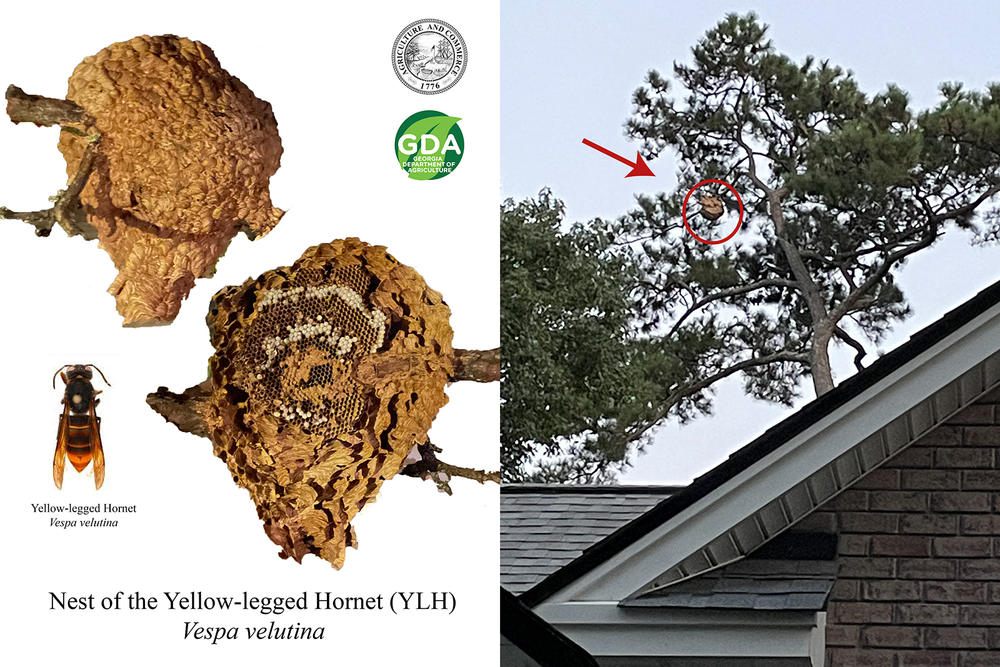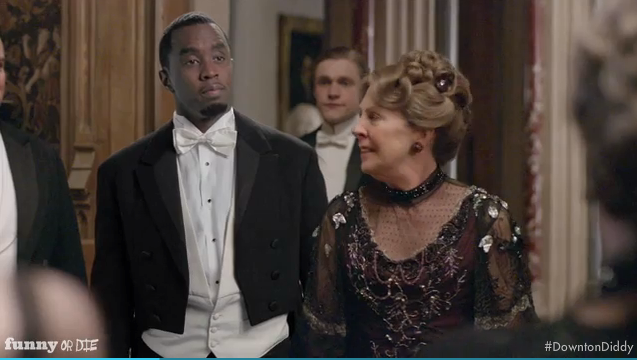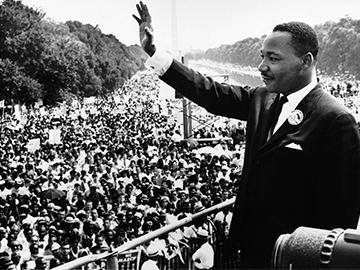
Section Branding
Header Content
Georgia Today: Trump arraignment date set; Storm coming to South GA; 'I Have A Dream' anniversary
Primary Content
On the Monday, Aug. 28 edition of Georgia Today: Former President Donald Trump and 18 others accused of election fraud conspiracy now have an arraignment date; South Georgians prepare for the arrival of a powerful storm; and on the anniversary of the "I Have A Dream" speech, we hear about a new biography of Dr. Martin Luther King Jr.

Peter Biello: Welcome to the Georgia Today podcast from GPB News. Today is Monday, August 28th. I'm Peter Biello. On today's episode, former President Donald Trump and 18 others accused of election fraud conspiracy now have an arraignment date. South Georgians prepare for the arrival of a powerful storm. And on the anniversary of the I Have a Dream speech, we hear about a new biography of Dr. Martin Luther king Jr. These stories and more are coming up on this edition of Georgia Today.

Story 1:
Peter Biello: A Fulton County Court has scheduled an arraignment next week for the 19 people charged in a scheme to overturn the results of Georgia's 2020 election. All 19 defendants have been scheduled for arraignment on Wednesday, Sept. 6, when they may enter pleas as well. That's according to court records. Former President Donald Trump is among those expected to enter pleas. A Trump spokesperson didn't immediately respond to a question about whether the former president intends to waive his right to appear in person. Fulton County DA Fani Willis used Georgia's racketeering law to bring the case. The indictment alleges that the defendants participated in a wide-ranging conspiracy to illegally try to keep Trump in power even after his election loss to Democrat Joe Biden.

Story 2:
Peter Biello: Beekeepers and gardeners in the Savannah area are on high alert. That's where agriculture officials confirmed on Friday the country's first known nest belonging to the yellow-legged hornet. GPB's Benjamin Payne has more.
Benjamin Payne: On a muggy August morning just outside Savannah, Tim Davis walks past a fountain at the coastal Georgia Botanical Gardens.
Tim Davis: This is our pollinator garden.
Benjamin Payne: It's here that the University of Georgia entomologist and other insect enthusiasts are conducting a pollinator census, basically a snapshot of the number and types of bugs that many plants depend on for reproduction.
Tim Davis: That's a really pretty scoliid.
Benjamin Payne: A scoliid wasp is one of them.
Tim Davis: You see that yellow on there? That's why they're so hard. But it's got those blue wings on it.
Benjamin Payne: Hard. He means to tell a scoliid apart from the yellow-legged hornet.
Tyler Harper: We're here this morning to announce the confirmed detection of yellow-legged hornets in the state of Georgia. This is the first time this has ever been detected in the United States.
Benjamin Payne: That's Georgia Agriculture Commissioner Tyler Harper earlier this month at a news conference where he shared that the invasive species was found by a Savannah area beekeeper in August. Then Friday, Harper announced that state scientists found a nest on nearby Wilmington Island, which they removed. Nevertheless,:
Tyler Harper: Yellow-legged hornet can continue to threaten honey production, native pollinators and our state's No. 1 industry, which is agriculture.
Benjamin Payne: That's a huge concern to Cherie and Bobbie Black. The married couple have harvested lots of honey this year from their 1-acre garden in the aptly named Savannah suburb of Garden City.
Cherie Black: Probably about 22 pounds so far, all together, not including what we left in the hives for the girls.
Benjamin Payne: The girls being what they call their honeybees, who they say face enough threats as it is.
Bobby Black: We're constantly fighting beetles and mites, So and on top of this — it's just another enemy, you know? Oh, man.
Cherie Black: We need the pollinators. You know, the pollinators are important for our plants. Our crops. We don't want anything to come and damage the bees.
Benjamin Payne: To stop the damage, scientists with the Georgia Department of Agriculture are doing insect detective work, mapping the locations of individual hornets to see if they can find more nests. A large part of this reconnaissance relies on backyard beekeepers and gardeners. They're urged to report suspected sightings to the state. In addition to yellow legs, these roughly 1-inch hornets have a yellow face and a yellow stripe on the abdomen. How the hornets got to Georgia may always be a mystery, says entomologist Tim Davis.
Tim Davis: There are so many ways, in a global economy, for an invasive species of any kind to move. So this could have come in a commercial airline flight. It could have come through the ports.
Benjamin Payne: In fact, the port of Savannah is one of the busiest on the East Coast. The yellow-legged hornet is a cousin of the bigger Asian giant Hornet, which reared its head in Washington State a couple of years ago. There, tracking and trapping has kept it at bay. For GPB News, I'm Benjamin Payne in Savannah.
Story 3:
Peter Biello: Southeast Georgia residents are preparing for the expected midweek arrival of Tropical Storm Idalia. Forecasters now expect the storm to be a Category 3 hurricane as it moves toward Florida. State and local officials are opening emergency operation centers as the National Weather Service issues hurricane watches from Valdosta to Brunswick.
Story 4:
Peter Biello: School officials in metro Atlanta's Forsyth County canceled two talks by a children's book author last week after he used the word "gay" in a presentation to Forsyth Elementary School students about the history of Batman. The author, Mark Tyler Nobleman, has spoken to students of all ages, all over the country hundreds of times about the superhero franchise's co-creator without incident. He calls it a suspenseful and inspirational talk that uses the word gay once because it's a pivotal fact in research that led DC Entertainment to acknowledge Batman's true origins.
Mark Tyler Nobleman: The fear in that district of the parental backlash is so severe that that one three-letter word overrode 57 minutes worth of other valuable content that I came to deliver.
Peter Biello: Nobleman says he planned to let the issue go until school officials issued a public apology for his presentation. They said he brought up a topic not covered by district standards.
Story 5:
Peter Biello: Commissioners in metro Atlanta's DeKalb County are asking taxpayers to chip in $15 million for a new mental health crisis facility. GPB's Ellen Eldridge reports on a proposed new tax.
Ellen Eldridge: The DeKalb County Regional Crisis Center needs more space to meet the demand. Ted Terry serves on the DeKalb County Board of Commissioners. He says taxpayers save when they invest in community emergency mental health services.
Ted Terry: The DeKalb County jail is the largest mental health care facility in DeKalb County. And everyone agrees, all the experts agree that if you're having a mental health issue, being in jail is the last place that we really want to send someone. But if there is an issue, they have to be taken somewhere.
Ellen Eldridge: If voters approve the special purpose local option sales tax, or SPLOST, in November, construction could begin next April. For GPB News, I'm Ellen Eldridge.
Story 6:
Peter Biello: Some Georgia families may qualify for assistance with their water bills through the federally funded low income Household Water Assistance Program. GPB's Sofi Gratas has more.
Sofi Gratas: Georgia's 19 community action agencies are in charge of processing applications for the program. Deputy director of the Southwest Georgia Community Action Council, Beverly Holloway, says they've received close to 6,000 applications since opening Aug. 1.
Beverly Holloway: This is based on a first come, first serve basis. They call in on an automated system, get an appointment. It's after that that we actually process applications and then mail into the vendors.
Sofi Gratas: People with past you or unpaid water bills who make up to 60% of the state median income, about $28,000 a year for one person, are eligible for the one-time assistance payment, up to $300 plus the cost of an unpaid water bill. Wellwater users are not eligible. State agencies will take applications through late September. For GPB News, I'm Sofi Gratas.
Story 7:
Peter Biello: Four new ship-to-shore cranes capable of servicing the largest containerized cargo ships have arrived at the port of Savannah. The Georgia Ports Authority said Friday that the new cranes will increase the crane fleet at the port's Garden City terminal to 34 after four older cranes were retired and recycled. The new equipment is part of the agency's nearly $2 billion infrastructure improvement plan aimed at keeping up with future supply chain needs.

Story 8:
Peter Biello: Sean "Diddy" Combs, one of the most successful entrepreneurs and cultural icons of all time, presented a check to Jackson State football during Saturday's Cricket Challenge Kickoff in Atlanta. That's an annual HBCU football game showcasing a team from each of the two NCAA divisions. Combs pledged $1 million to JSU football during his Lifetime Achievement Award acceptance speech at the 2022 BET Awards. Combs will invest in JSU football with installments over the next several years. The Atlanta Voice reports that although this donation does not directly impact other schools, the pledge uplifts the entire HBCU community by bringing awareness to the ongoing commitment to professional development, career advancement, and increased support for HBCU athletics and institutions.
Story 9:
Peter Biello: The Georgia Senate has formed a study committee to tackle a persistent shortage of workers in commercial trucking. The committee will hold its first meeting this week. Industry leaders say a workforce that is nearing retirement and the rise in e-commerce during the pandemic have contributed to a shortage of truck drivers.

Story 10:
Peter Biello: Today marks the 60-year anniversary of the march on Washington and Martin Luther King Jr.'s "I Have A Dream" speech a few months ahead of the anniversary. Journalist and bestselling author Jonathan Eig released what's being described as the first major biography of King in decades. GPB's Orlando Montoya talked with the author about the book, King: A Life.
Orlando Montoya: First of all, there have been so many King biographies. What makes this one different and what new insights does it share?
Jonathan Eig: Well, I wanted to write a book that would help people remember that King was a human being, not always a monument, not always a national holiday. And there are still people in Atlanta who knew him well. And well, the first thing I did was interview a lot of those people. And I was struck by the fact that they knew what he sounded like, what he felt — what it felt like to be in the room with him. And I wanted to write a book that might make people feel like they were in the room with him.
Orlando Montoya: There's a lot of new information in the book, and we can't talk about it all. But I want to ask you about some of the revelations making headlines. One is that President Johnson knew about FBI Director J. Edgar Hoover's campaign to undermine King but did nothing to stop it. Why?
Jonathan Eig: I think he was enjoying the gossip. He enjoyed having power over people. He enjoyed having more information on people, even if they were not necessarily his political rivals. Even if they were people that he allied with and worked with, he still liked having information that he might use to control that relationship.
Orlando Montoya: Tell me about how you researched this book in terms of the new information, because there's so much that has come out in the last 30, 40 years.
Jonathan Eig: Well, as I said, I began by interviewing as many people as I could who knew him. And once I began that process, I started looking at archival collections. I found an unpublished autobiography written by Daddy King, Martin Luther King Sr., and that had a lot of new details about the Kings' childhood in Atlanta and about Daddy King's upbringing in Stockbridge, Ga.
Orlando Montoya: You do focus a lot on Daddy King. King Sr. What new do we learn about their relationship and how the father influenced his son?
Jonathan Eig: The relationship between Daddy King and MLK is a fascinating one. It's clear that they love each other, that they pushed each other. But Martin Luther King Jr. always has a little bit of fear of his father and really hates confrontation with his father. It's funny to think about the fact that one of our great protest leaders is averse to conflict, and not just with his father, with any father figure, with people like Roy Wilkins of the NAACP. King really tries at all costs to avoid conflict. And I think that goes back to his difficult relationship with his father. You know, Daddy King spanked the kids sometimes in the front yard or the backyard where neighbors could see. And he was very upset when his son began to risk his life in the civil rights movement and wanted him to come home and wanted him to give up the leadership of the Montgomery bus boycott. But Martin Luther King, as hard as it was for him, did stand up to his father in his own way and, you know, forged his own path.
Orlando Montoya: And even though I knew generally where this path was going, there's a narrative sense, the way you write it that leads some doubt: “Is he going to become a minister? Is he going to go to Montgomery?” Did you find that hard to do with the man who's so well known?
Jonathan Eig: When you write a book like this, you have to pretend that you're starting from scratch, that nobody knows the story and you have to tell it the way it deserves to be told, because we don't know. Dr. King didn't know that he was going to become the leader of the civil rights movement. He wasn't looking for that job. This is part of the story. And part of my job as the writer is to make you feel like you're living this along with Dr. King, that you don't know the conclusion because he didn't know the conclusion.
Orlando Montoya: Let's talk about the “I Have a Dream” speech for a moment. One thing that I didn't know about it, which you document, was how unprepared King was for it mentally. Can you explain?
Jonathan Eig: Well, he didn't write the speech until he got to his hotel in D.C. the night before. And he was up late that night working on it. And when you read the draft that he submitted — and he turned it into reporters before the speech so they could have a copy of it and they could get, make their deadlines — it's a fairly political document. It's powerful, but it doesn't soar with the kind of rhetoric that we're used to. It's more of a political speech than a than a religious one. And King's sermons were really usually what he was best known for, of course. But as he finished the written portion of the text, he decided he wasn't done yet and he was going to blow past the time limit they had set on him and he was going to extend. And that's when he said, “And today, I have a dream.” And —
Orlando Montoya: That was Mahalia Jackson, who cried it out from behind.
Jonathan Eig: Well, I discovered something a little different. Many people have reported over the years that Mahalia Jackson cried out and inspired him. And then King, hearing Mahalia, decided to go on to do the “I Have a Dream” speech, which she had heard him give earlier in Detroit. But that's not true, actually. What happened was that King decided on his own — and I obtained a copy of the master recording that Motown made that day, and you could hear every word out of Mahalia’s mouth. What actually happened is that King finished his speech, began “I Have a Dream” and then, about the second or third time he said “I have a dream,” Mahalia echoed him and said, “Tell them about the dream, Martin.” And over the time, that story has been changed a little bit to give Mahalia credit for inspiring him. But I don't think that's actually what happened.
Orlando Montoya: Another thing that people talk about over and over again with the speech is where he tried it out before. I'm from Savannah, as you know, and there's a church down there that says, you know, that there was a version of the speech here. And there's another version of the speech there. What can you say about that?
Jonathan Eig: King was not the least bit concerned with originality when he gave a sermon or a speech. He liked to practice things to try them out on audiences. This is what all preachers do. Try it out on an audience, see what works. And he tried the dream speech in Savannah, improved on it, tried it again in Detroit. It came originally, it was inspired greatly by a Langston Hughes poem. After trying it in Detroit, getting a great response — at that point, it was the biggest rally he'd ever spoken in front of, in Detroit. He brought it to D.C. and thought, "Well, it worked in Detroit, it worked in Savannah. Here I go again."
Orlando Montoya: And in coming up with new ways to tell stories that people might know already, I want to point out how you talk about the “I Have a Dream” speech in the book by focusing on one person from that person's point of view. Why did you decide to focus on an audience member?
Jonathan Eig: Well, there's a problem with this storytelling that I encountered: How am I going to write about the “I Have a Dream” speech in a way that feels as powerful as the Dream speech itself? I can't. I cannot, on the printed page, convey the magic, the power, the majesty of that speech. So I had to do something different. And I decided to take the lens off of Dr. King and show how that speech echoed with the people in the crowd. So, I wove in three stories, really: The story of Dr. King and the words and the speech he's giving; along with the story of a teenage girl from Chicago, Francine Washington, who just at the last minute got on a train and decided that she was going to come there because she was inspired by what she saw King doing. She’s a Black girl. And she wanted to believe that King could actually change her life. The other, third person I wove in is the white bodyguard who's standing next to King as he gives his speech. If you look in the photos, you'll see there's this tall guy in a park ranger hat. His name is Gunny Gundrum. And I thought, “Who's that guy? Why is he in every photo of King giving his speech?” And at one point, if you watch the video, Gunny reaches in and adjusts the microphone in the middle of the speech. Who has got the nerve to stick his arm in front of Dr. King when he's giving the greatest speech of his life? But Gunny did. So I tracked him down to and talked about what it was like for a white man who had never met a Black person until he went into the Army. What was it like for him? How did that speech change his life? So I wove those three stories into the chapter.
Orlando Montoya: Jonathan Eig, it's a fabulous read. And I want to thank you for coming in and talking about your book, King A Life by Jonathan Eig.
Jonathan Eig: Thank you.
Peter Biello: And this biography was the subject of a recent episode of Narrative Edge, another of GPB's podcasts, hosted by me and Orlando Montoya. You can find Narrative Edge wherever you get your podcasts.
Story 11:
Peter Biello: In sports, Viktor Hovland took the FedEx Cup in record fashion at Atlanta's East Lake Golf Club yesterday. Hovland closed with a 7-under 63, the lowest score by the winner in PGA Tour Championship history and won by five shots over Xander Schauffele. Hovland and Schauffele put on an exciting show but in the end, the 25-year-old Norwegian earned the Cup title, its $18 million bonus and speculation that he might be considered for PGA Tour Player of the Year. In baseball, after winning four in a row, the Braves lost to the San Francisco Giants 8 to 5 yesterday. Marcell Ozuna hit his 29th home run to break a tie with Ronald Acuna Jr. for second most on the team behind Matt Olson. The Braves announced today second baseman Ozzie Albies will return to the lineup for tonight's game against the Colorado Rockies. He'd been on the injured list since early last week with a left hamstring strain. Bryce Elder is expected to get the start for the Braves. And in basketball, the Atlanta Dream lost to the Indiana Fever 83 to 80 yesterday. Cheyenne Parker put up 24 points for the Dream. Atlanta hosts the Phoenix Mercury tomorrow.
And that is it for this edition of Georgia Today. Thanks so much for listening. If you want to learn more about any of these stories, visit GPB.org/news. And remember to subscribe to this podcast. The next couple of weeks are going to be busy news wise, and we want you to stay on top of it. So subscribe to this podcast and we will pop back in your feed every weekday afternoon. If you have feedback, you get a story idea or something you want us to know about, the best way to let us know about it is to send an email. The address is GeorgiaToday@GPB.org. I'm Peter Biello. Thanks again for listening. We'll see you tomorrow.
---
For more on these stories and more, go to GPB.org/news.
Read the latest updates on the Georgia indictments here.



